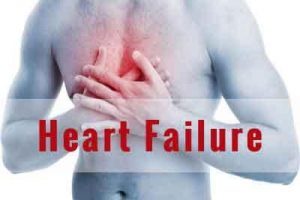- Home
- Editorial
- News
- Practice Guidelines
- Anesthesiology Guidelines
- Cancer Guidelines
- Cardiac Sciences Guidelines
- Critical Care Guidelines
- Dentistry Guidelines
- Dermatology Guidelines
- Diabetes and Endo Guidelines
- Diagnostics Guidelines
- ENT Guidelines
- Featured Practice Guidelines
- Gastroenterology Guidelines
- Geriatrics Guidelines
- Medicine Guidelines
- Nephrology Guidelines
- Neurosciences Guidelines
- Obs and Gynae Guidelines
- Ophthalmology Guidelines
- Orthopaedics Guidelines
- Paediatrics Guidelines
- Psychiatry Guidelines
- Pulmonology Guidelines
- Radiology Guidelines
- Surgery Guidelines
- Urology Guidelines
Latest AHA Guidance for managing Right-Sided HF

Various causes of right-sided heart failure (RHF) include, among others, primary cardiomyopathies with right ventricular (RV) involvement, RV ischemia and infarction, volume loading caused by cardiac lesions associated with congenital heart disease and valvular pathologies, and pressure loading resulting from pulmonic stenosis or pulmonary hypertension from a variety of causes, including left-sided heart disease. Dr Marvin A. Konstam and colleagues have issued AHA Scientific Statement on Evaluation and Management of Right-Sided Heart Failure on behalf of the American Heart Association Council on Clinical Cardiology.The Scientific Statement has been published in Journal Circulation.
This comprehensive document reviews the etiologies, pathophysiology, evaluation and treatment of right heart failure in an era of novel therapeutics for pulmonary hypertension and increasing incidence of right heart failure following left ventricular assist device placement.
Key Points-
- Right heart failure is a clinical syndrome of signs and symptoms due to right ventricular dilatation and dysfunction. When acute, this syndrome includes hypoperfusion, tachycardia and hypotension; when chronic, it includes lower extremity edema, ascites, dyspnea, and renal dysfunction due to congestion.
- Compared to the left ventricle, the right ventricle has distinct embryologic origins, physiology, and anatomy which explain its sensitivity to increased afterload.
- Right heart failure is frequently associated with left heart failure is a predictor of increased morbidity and mortality.
- Multiple modalities of imaging have been validated for determination of right ventricular function; however, magnetic resonance imaging is currently the gold standard for measurements of volume, mass and systolic function.
- Volume management is paramount in the care of patients with acute right heart failure as it impacts loading conditions, right ventricular function, systemic congestion, but most importantly ventricular interdependence which impairs left ventricular filling, stroke volume and cardiac output.
- The cornerstone of management of chronic right heart failure consists of volume management with oral diuretics. Additional therapeutic options are directed at the underlying etiology of right heart failure. Neurohormonal antagonists including ACE inhibitors, beta-blockers and mineralocorticoid antagonists may be beneficial, although such benefit has not been well-documented as it has been in patients with reduced left ventricular ejection fraction.
- Right heart failure manifests in congenital heart disease specifically in patients with a systemic right ventricle (L-transposition or repaired D-transposition), single right ventricle physiology or atrial septal defects. Unfortunately, no long term medical therapies have yet documented long-term clinical benefit.
- Right heart failure is often a downstream consequence of pulmonary hypertension. Pulmonary vasodilators, such as phosphodiesterase-5 inhibitors, endothelin receptor antagonists, and prostacyclin analogs provide mortality benefit among those with Group I pulmonary hypertension
- Institution of mechanical circulatory support in acute right heart failure is important to consider early,prior to the onset of multi-organ system dysfunction, as recovery of RV function allowing discontinuation of temporary support frequently occurs.
For further reference log on to :
Circulation. doi:10.1161/CIR.0000000000000560.
congenital heart diseaseinfarctionIschemiaprimary cardiomyopathiesright ventricularRight-Sided HFvalvular pathologies
Source : with inputsNext Story
NO DATA FOUND

Disclaimer: This site is primarily intended for healthcare professionals. Any content/information on this website does not replace the advice of medical and/or health professionals and should not be construed as medical/diagnostic advice/endorsement or prescription. Use of this site is subject to our terms of use, privacy policy, advertisement policy. © 2020 Minerva Medical Treatment Pvt Ltd